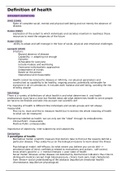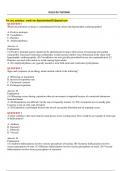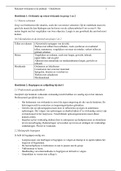Samenvatting
Summary Health, Health Determinants And The EU
A summary for the new EPH1021 course on Health, Health determinants and the EU. Contains the following: definition of health, definition of public, definition of public health, Europe and Covid-19, determinants of health, inequalities in health, socioeconomic health inequalities, ethics and law, eu...
[Meer zien]













